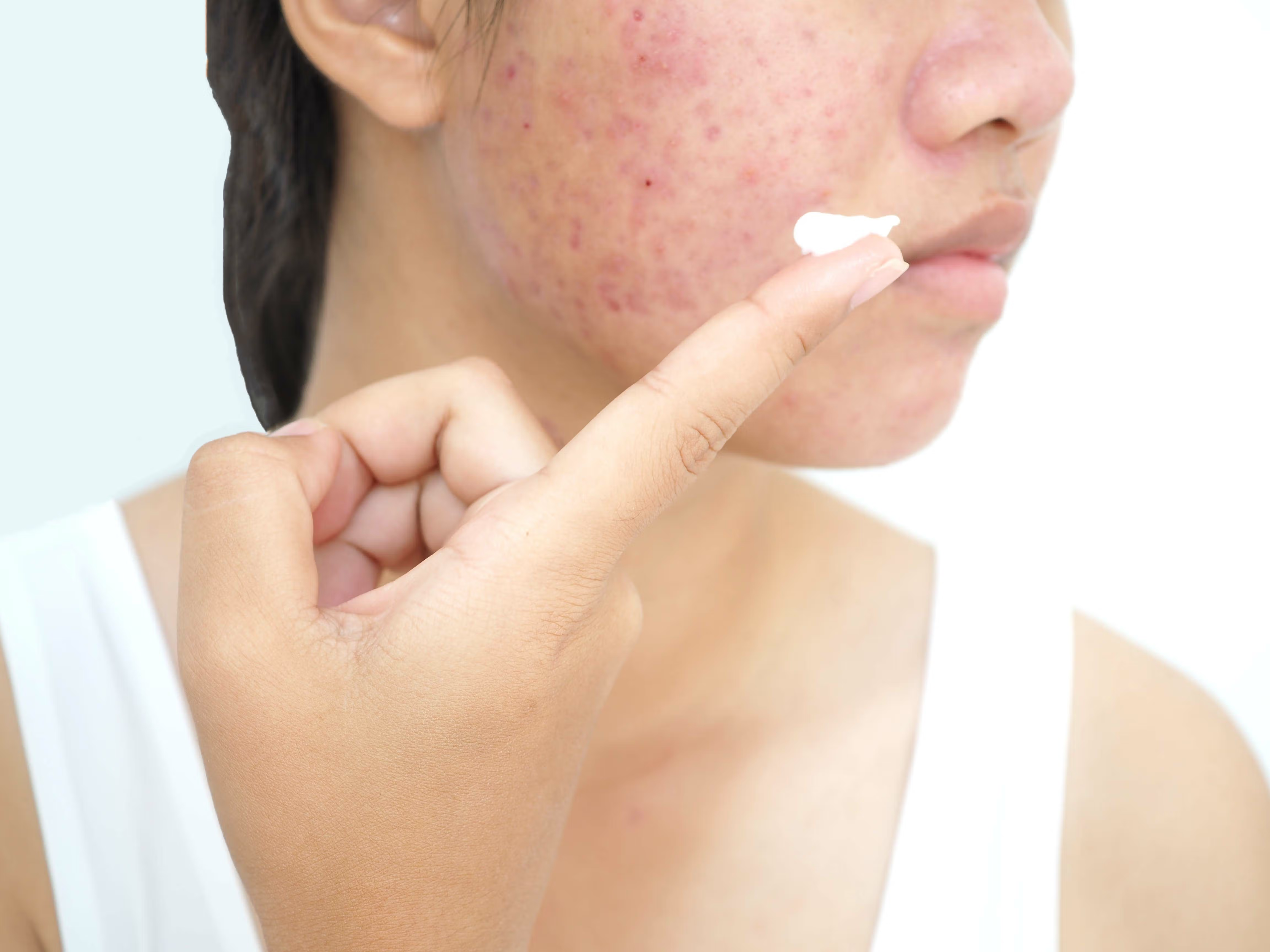- Case-Based Roundtable
- General Dermatology
- Eczema
- Chronic Hand Eczema
- Alopecia
- Aesthetics
- Vitiligo
- COVID-19
- Actinic Keratosis
- Precision Medicine and Biologics
- Rare Disease
- Wound Care
- Rosacea
- Psoriasis
- Psoriatic Arthritis
- Atopic Dermatitis
- Melasma
- NP and PA
- Skin Cancer
- Hidradenitis Suppurativa
- Drug Watch
- Pigmentary Disorders
- Acne
- Pediatric Dermatology
- Practice Management
- Prurigo Nodularis
- Buy-and-Bill
Video
Role of Moisturizers and Moisturizer Ingredients
Author(s):
Joshua Zeichner, MD, and Mona Gohara, MD, discuss what ingredients make an ideal moisturizer.
Joshua Zeichner, MD: We talked all about the role of cleansers in complementing our acne treatments. Let's move on to moisturizers. There are lots of different moisturizers out there, different textures, consistencies, ingredients, but at the most basic level, there are just 2 main roles. A moisturizer is going to help repair inherent defects in the skin barrier in our acne patients and help minimize potential irritation of those acne treatments themselves. Do you have any other comments?
Mona Gohara, MD: Yes, you're right. Again, this isn't “just choose any moisturizer off the shelf.” We have to be pretty deliberate about how we're advising our patients to make sure that these moisturizers help with the functional and structural component defects in the barrier. Are they decreasing transepidermal water loss? Yes, most moisturizers will if they're having inclusive component or a humectant component, which most of them do so most of the time they will. Then ask that question beyond that, which is, are the moisturizers addressing the structural component? That is what you alluded to. Are they depositing ceramides into the epidermal barrier and helping to fortify and strengthen the barrier to support both acne improvement and the adverse effects from acne treatment? Moisturizers are exceptionally important because we talk about this all the time, you and I, offline and to the media, which is that they can have other ingredients in them, such as sunscreen, that can help as part of the treatment in acne, particularly in our brown and Black patients where post-inflammatory hyperpigmentation is a big concern.
Joshua Zeichner, MD: Mona, I always love any opportunity that I have to chat with you because you have a great background in cosmeceuticals, so I'm going to pick your brain. Question number 1: general guidance, what do you say to your patients, any specific vehicles or ingredients to choose or to avoid? Is oil terrible for our acne patients? What are you recommending?
Mona Gohara, MD: Thank you for that nice compliment. This is a great question because I used to tell my patients a hundred times a day if you have oily skin, choose a lighter lotion. I would say, “L is light lotion. That's how you remember it.” If you have dry skin, choose a heavier cream. I recently read a study that was compelling, it showed advances in R&D [research and development], there's been such advances that you can have an emollient and occlusive and a humectant be very light. I now more focus on light and not adding to an increase in oil production. I've changed my mentality now and go with what the patient's desires are in terms of cosmetic elegance. I recommend things that are lighter lotions and heavier creams, but I always recommend products that have the combination of the 3 primary moisturizing ingredients, emollients, occlusives, and humectants, because most studies show that the most important thing is not the vehicle, but the ratio of humectant to occlusive to emollient.
Joshua Zeichner, MD: For everybody out there, take us through those 3, emollients, humectant, and occlusive ingredients, with an example or 2 of each. You know this, I know this, but let's tell everybody.
Mona Gohara, MD: The occlusives, as we know, are that blanket over the epidermal barrier, decreasing transepidermal water loss at its best because they create that blanket.
Joshua Zeichner, MD: I call it a breathable barrier.
Mona Gohara, MD: I'm sorry?
Joshua Zeichner, MD: I like to call it a breathable barrier.
Mona Gohara, MD: Yes, exactly. Like silicones, dimethicones, those are common occlusives. Humectants, we used to think drew in ambient humidity into the skin and ambient water, but now we know they're sucking up from the dermis in other parts of the epidermis. Glycerin is my favorite. You can see that glycerin is in every cleanser, it's in every moisturizer. Glycerin should win the award for the ingredient of the year. Then emollients integrate between the epidermal cells to stop or preclude transepidermal water loss. Do you have a preference on this?
Joshua Zeichner, MD: I usually say lighter lotions in some cases, the gel creams, but you want to make sure that whatever you’re recommending has something more than a humectant because, as you mentioned, the humectants suck that water from the dermis. They're like sponges and it pulls onto water wherever it can get it from. In a humid environment, maybe it does take it from the air, but most of the time it'll take it from deeper in the skin and bring it to the outer skin layer. As you said, glycerin is really that prototype, also hyaluronic acid, but while humectants are great at grabbing onto the water, they’re not great at keeping it there. Unless you have some sort of emollients or occlusive ingredient along with it, it tends to evaporate and almost can make things worse in the end. For everybody out there, especially if you’re acne patients, the hyaluronic acid serum straight is not something that I recommend and it usually should be layered alongside a moisturizer. What do you think?
Mona Gohara, MD: Yes. That's exactly right. It's all about the ratio of humectant to emollient to occlusive. My thoughts around that shifted so that's a good pearl.
Transcript Edited for Clarity





